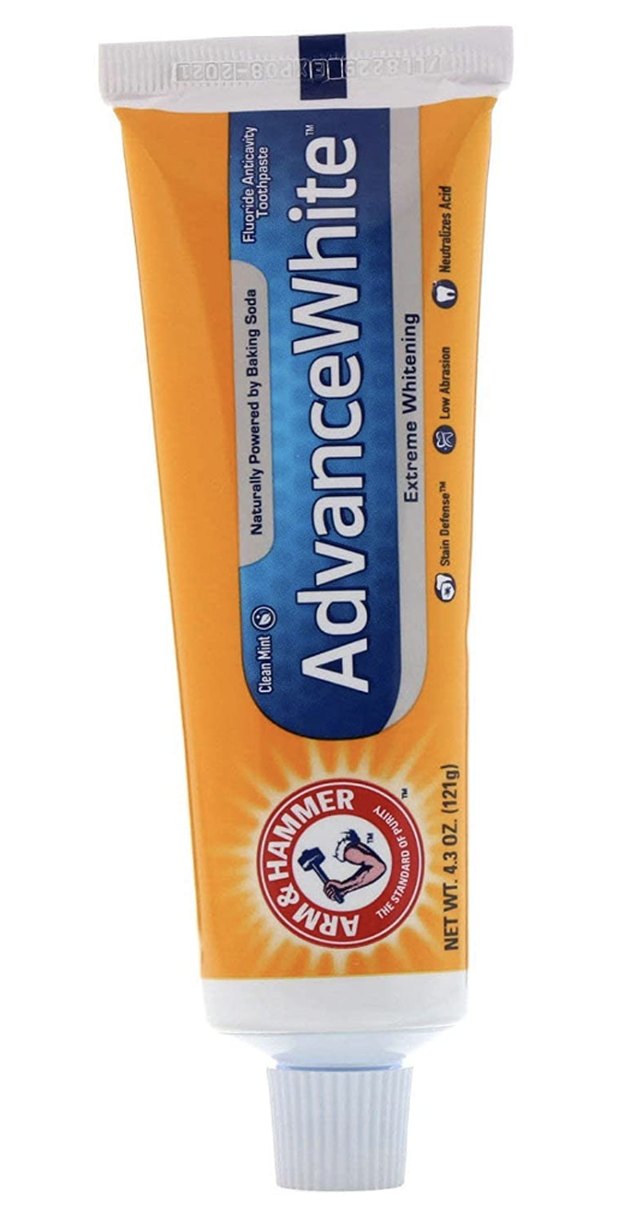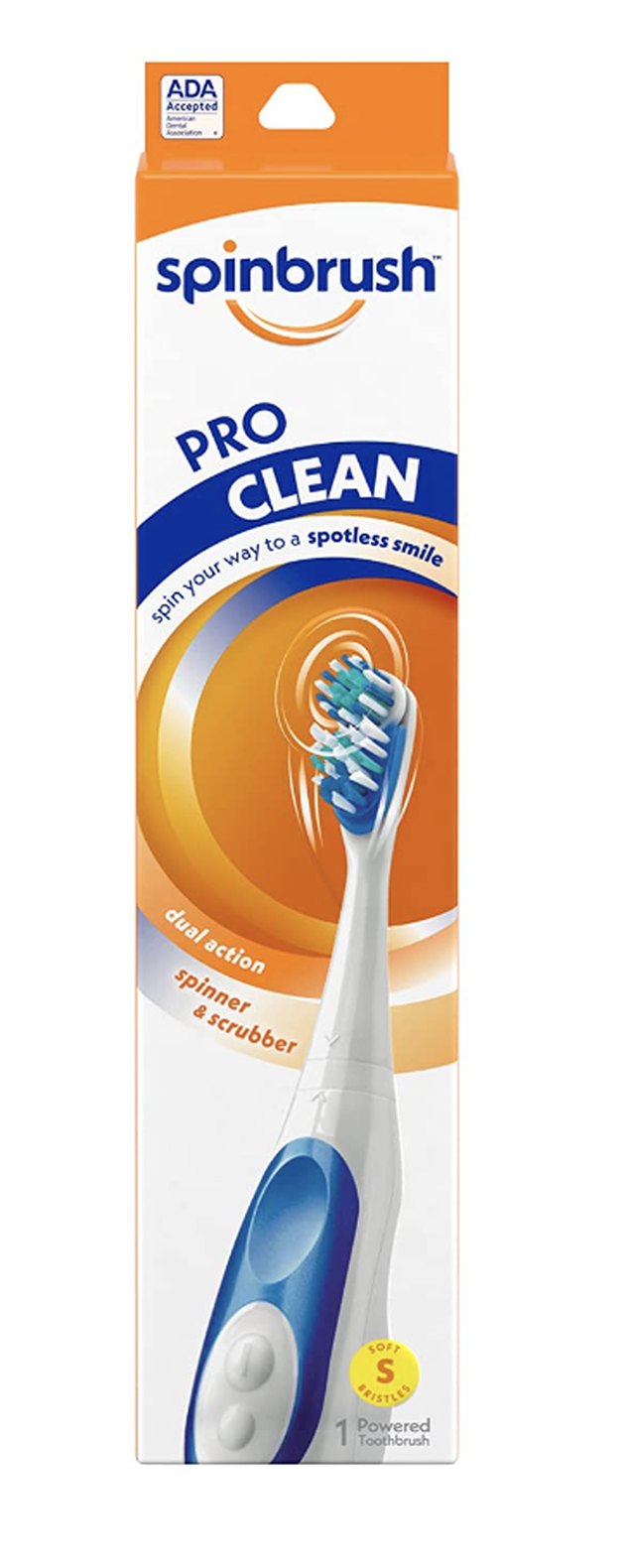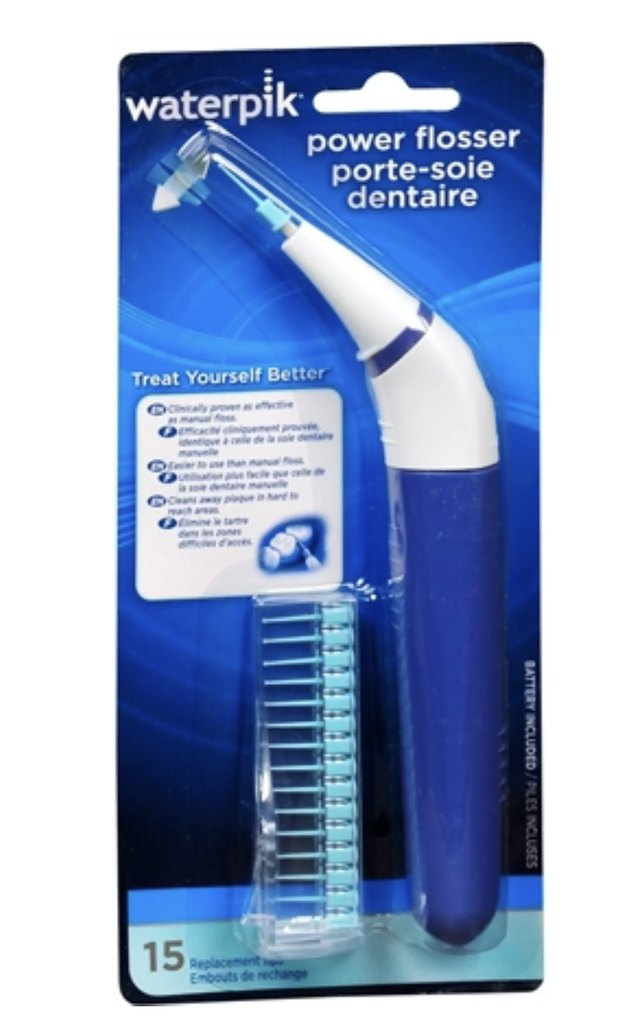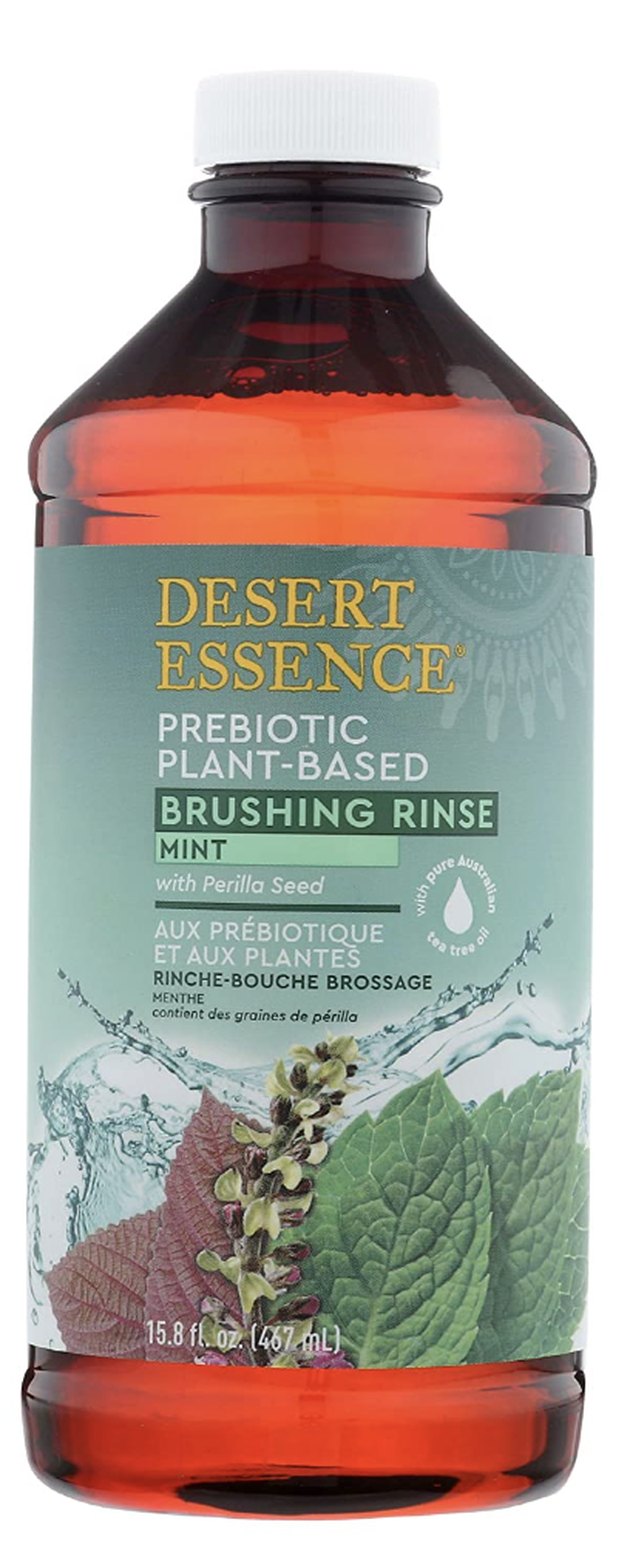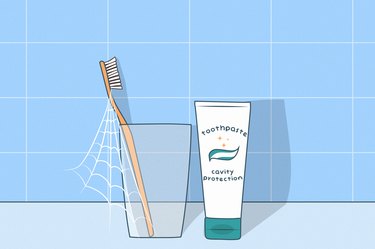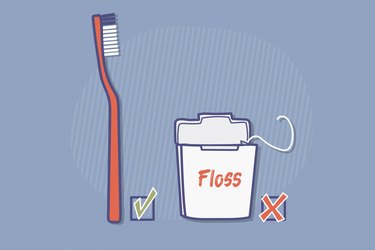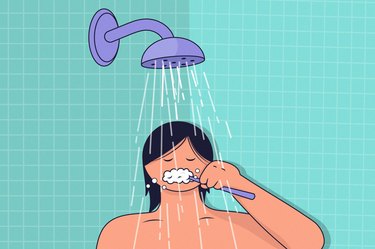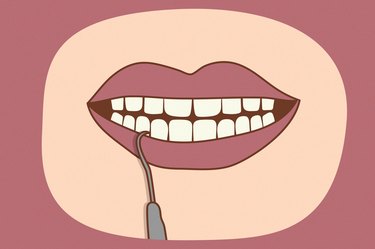
Let's face it: Tartar buildup on your teeth isn't pretty to look at. But if your next dental appointment is still a ways off, is it OK to try to get rid of the tartar at home?
The answer is a resounding "no."
Video of the Day
Video of the Day
Plaque, the sticky film that forms on teeth from leftover food and saliva, is easy to remove by brushing and flossing, says Kami Hoss, DDS, a San Diego-based dentist and author of If Your Mouth Could Talk. Tartar on the other hand — the off-white or yellow stains that form when plaque hardens over time — is almost impossible to remove at home, he says.
In addition, trying to remove tartar from your teeth without a dentist can cause injuries or damage to your teeth.
Here's why you shouldn't attempt it, plus expert advice for keeping your teeth tartar-free.
Risks of Trying to Remove Tartar at Home
"It's difficult, but not impossible, to remove some tartar at home. But the risks far outweigh the rewards," says Harold Katz, DDS, founder of TheraBreath oral care products.
Dentists are trained to use the sharp metal dental picks that scrape tartar off teeth, especially around the gum line (where it tends to accumulate the most). If you're not trained, you're more likely to cause harm.
"Only a tiny slip here and there and you've punctured the gum tissue. Within an instant, your gums will start bleeding," Dr. Hoss says. You could puncture other parts of your mouth, too, like your lips, cheeks or tongue.
And unless you've sterilized your scraping instrument, it could harbor bacteria that could also cause a puncture or cut to become infected.
Not only that, but trying to scrape tartar off your teeth can potentially lead to scraping your enamel — the tooth's protective outer covering. Enamel defends your teeth against cavities, infection and sensitivity from hot, cold and sweets. Once it's gone, it doesn't grow back, Dr. Hoss points out.
In fact, scratched enamel "is prone to accumulate more plaque, which can turn into even more tartar, creating a vicious cycle," he says.
How to Deal With Tartar at Home
There's no safe way to get rid of tartar buildup at home. But you can prevent it from forming in the first place by preventing plaque buildup. This starts with a consistent oral care routine.
Both Dr. Katz and Dr. Hoss recommend the following steps:
1. Brush Your Teeth at Least Twice a Day
Brush for two minutes total each time, devoting 30 seconds to each quadrant of your mouth (the top right, top left, bottom right and bottom left sides). Make sure to give your tongue a quick brush, too.
"Always use a soft-bristled brush — never medium or hard. Harder bristles can destroy gum tissue at the gum line, exposing unprotected roots and leading to sensitive teeth," Dr. Katz says.
Brush with a toothpaste containing fluoride, like Arm & Hammer Advance White Toothpaste, which will do the best job at preventing tooth decay.
2. Consider an Electric Toothbrush
Electric brushes are better at cleaning than manual brushes, per the National Library of Medicine (NLM). Dr. Katz is a fan of the SpinBrush PRO Clean.
3. Floss Twice a Day
Floss removes plaque in areas where your toothbrush can't reach, like between your teeth. (Here's the right way to do it.)
If you have dexterity issues or find floss hard to manage, a water flosser is a good alternative, Dr. Hoss says. Try the Waterpik Power Flosser, which flushes food and debris out from between your teeth like floss.
4. Use a Mouthwash
Some oral rinses are formulated to help prevent plaque and gingivitis. Dr. Hoss recommends using a mouthwash that contains probiotics to support healthy mouth bacteria (like inulin and xylitol) and is free of artificial colors, flavors and preservatives. Try Desert Essence Prebiotic Plant-Based Brushing Rinse.
5. See Your Dentist Twice a Year
Regular cleanings can help prevent tartar buildup and protect against cavities and gum disease, per the NLM.
What About Oil Pulling?
You may have heard people online talk about oil pulling (or swishing coconut oil around in your mouth) as a natural remedy to get tartar off your teeth. But it's not effective for fighting tartar, and "it can indiscriminately kill both good and bad microbes" in your mouth, Dr. Hoss says. "I prefer using a safe and effective mouthwash with prebiotics that can feed healthy microbes while starving the harmful ones."
So, How Bad Is It Really to Scrape Tartar Off Your Teeth?
It's difficult to remove tartar on your own, and trying to can injure your mouth or damage your teeth.
"Doing this at home is not only dangerous from a pain perspective, but also from a hygiene perspective," Dr. Katz says.
"I'm a dentist and I wouldn't do it to myself," Dr. Hoss adds.
The bottom line? Don't do it.
Was this article helpful?
150 Characters Max
0/150
Thank you for sharing!
Thank you for your feedback!
Is this an emergency? If you are experiencing serious medical symptoms, please see the National Library of Medicine’s list of signs you need emergency medical attention or call 911.

